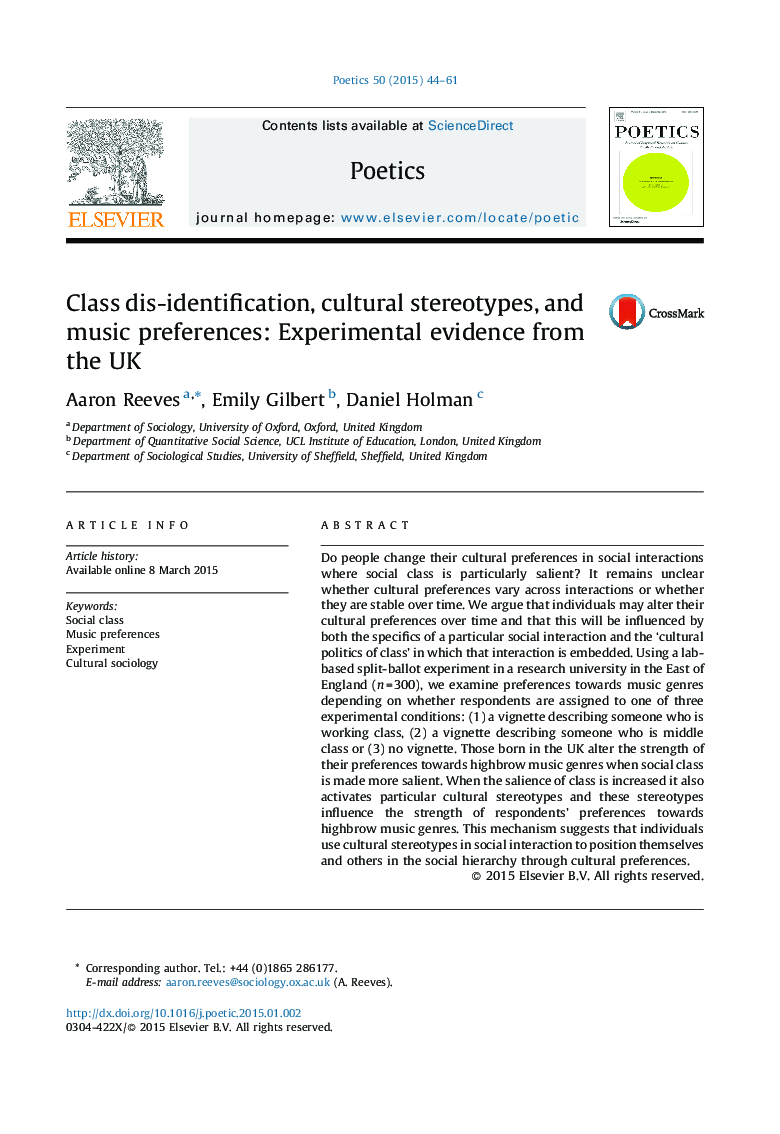| Article ID | Journal | Published Year | Pages | File Type |
|---|---|---|---|---|
| 1128257 | Poetics | 2015 | 18 Pages |
•We conduct a split-ballot experiment to examine music preferences.•Using vignettes we increase the salience of class for some respondents but not others.•UK-born respondents alter their preferences towards highbrow music when social class is salient.•When the salience of class is increased it activates cultural stereotypes.•Cultural stereotypes influence respondents’ preferences towards highbrow music.
Do people change their cultural preferences in social interactions where social class is particularly salient? It remains unclear whether cultural preferences vary across interactions or whether they are stable over time. We argue that individuals may alter their cultural preferences over time and that this will be influenced by both the specifics of a particular social interaction and the ‘cultural politics of class’ in which that interaction is embedded. Using a lab-based split-ballot experiment in a research university in the East of England (n = 300), we examine preferences towards music genres depending on whether respondents are assigned to one of three experimental conditions: (1) a vignette describing someone who is working class, (2) a vignette describing someone who is middle class or (3) no vignette. Those born in the UK alter the strength of their preferences towards highbrow music genres when social class is made more salient. When the salience of class is increased it also activates particular cultural stereotypes and these stereotypes influence the strength of respondents’ preferences towards highbrow music genres. This mechanism suggests that individuals use cultural stereotypes in social interaction to position themselves and others in the social hierarchy through cultural preferences.
